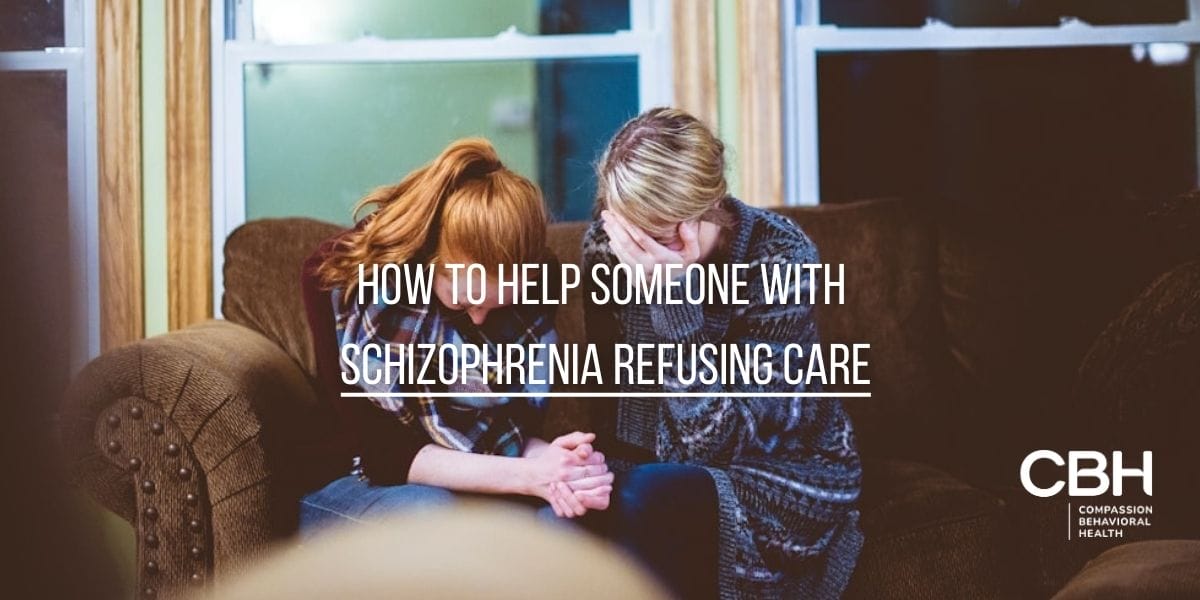Obsessive-compulsive disorder (OCD) can impact a person’s trust in their own memories.
The human mind has an amazing ability to store information, but memory is tricky.
Obsessive tendencies typical of OCD can lead to a fixation on the recollection of certain events. A person may cast doubt on their own memories, leading to an obsessive spiral that’s tough to break out of. In this article, we’ll be reviewing some essential information about false memory OCD.
False Memory OCD Symptoms
Obsessive-compulsive disorder involves these two primary symptom groups:
- Obsessions
- Compulsions
Obsessions are unwanted thoughts that can’t be turned off. Obsessions may create urges to repeat certain behaviors—compulsions—over and over again.
False memories can be a form of obsessive thinking.
Someone experiencing false memory OCD may suffer from doubts about their ability to accurately recall events. They may wonder if they did something wrong, even when there’s no evidence of that being the case. The doubts grow and grow until it’s difficult to separate fact from fiction.
False memory OCD may involve these symptoms:
- Intolerance for uncertainty
- Constant doubts about memories
- Impulsive, intrusive thoughts
- Avoidance of specific places or people
- Distress about certain topics
- Following strict routines
- Attempting to garner reassurance from others
- Engaging in ritualistic behavior
- Self-harming or self-punishing actions
Someone who is struggling with false memory OCD might deal with intense anxiety around certain people, places, or things that trigger obsessive remembering. Or, they may experience a steady current of worry about their general ability to process memories normally.
Symptoms of false memory OCD often involve maladaptive attempts to control memories and influence the events that trigger false memories. This may include seeking constant reassurance from other people about whether or not certain events occurred. Or, the false memory struggle may be intensely embarrassing, shameful, and private.
Where Do False Memories Come From?
How can a person seem to remember something that never actually happened?
Memories are often less precise than we imagine them to be. We all misremember events to an extent. In false memory OCD, misremembering takes on an obsessive quality.
These factors may lead to obsessive false memories:
- Extended time between a past event and the present
- Underlying mental health conditions that affect the quality or intensity of a memory (e.g. (PTSD)
- Hallucinations or episodes of psychosis
- Being under the influence of alcohol or drugs when a memory was formed
- Cognitive impairment due to age
- Suggestions of details from others
While it’s normal to have some doubts about memories, false memories are a concern if they cause distress and interrupt one’s ability to maintain a normal quality of life.
What makes false memory OCD worse?
Factors That Worsen False Memory OCD
Several factors can exacerbate the severity of False Memory OCD. By identifying and addressing these factors, individuals can better manage their symptoms and improve their overall well-being.
Stress and False Memory OCD
Stress is a significant contributing factor that can escalate False Memory OCD symptoms. High levels of stress can heighten anxiety and trigger obsessive thoughts. In turn, these thoughts may further strengthen the false memories, reinforcing the distressing cycle.
Therefore, developing stress-management techniques, such as regular exercise, deep breathing exercises, and engaging in relaxation activities, can help individuals with False Memory OCD manage their condition more effectively.
Lack of Sleep and Its Effects on False Memories
Sleep deprivation can exacerbate False Memory OCD symptoms. Studies have shown that the brain’s ability to differentiate between real and imagined events diminishes when sleep-deprived. This can make individuals with False Memory OCD more prone to believing and obsessing over false memories.
Establishing healthy sleep habits, such as maintaining a consistent sleep schedule and creating a sleep-friendly environment, can contribute to better management of False Memory OCD symptoms.
Treatment for False Memory OCD
Struggles with false memories can be addressed as part of OCD treatment using one of these approaches.
Cognitive Behavioral Therapy
Cognitive-behavioral therapy (CBT) is based on the premise that psychological problems are rooted in:
- Unhelpful ways of thinking
- Learned patterns of harmful behavior
CBT involves working to improve thinking patterns. This includes gaining a better understanding of where negative thoughts come from, learning to react calmly to triggers, and learning coping skills.
CBT is effective for OCD. A person with OCD has developed a series of complex, unhelpful thought patterns. Some of these patterns may lead to compulsive behaviors. During one-on-one sessions with a therapist, CBT helps a patient break the bonds between obsessions and compulsions.
Group Therapy
For many people who deal with a mental health challenge, it’s helpful to spend time in a supportive environment with others who manage their own versions of the same condition.
In a group therapy setting, you can share your experience with OCD false memory symptoms. Listening to peers share their own stories may help you feel less alone and introduce you to new coping strategies.
Exposure and Response Prevention Therapy
Exposure and Response Prevention (ERP) therapy involves exposure to obsession-inducing triggers. A therapist helps a patient experience a trigger without activating an obsessive response.
For example, an individual with a doorknob germ obsession may be asked to repeatedly touch a doorknob without an obsessive hand-washing response.
With the help of a therapist, anxiety levels gradually drop during exposure to triggers, and the links between obsessions and compulsions can be broken.
For someone who experiences false memories, ERP therapy may involve exposure to ideas and settings that trigger memory obsessions. A therapist assists a patient in learning to experience triggers without moving into a false memory spiral.
Get Help for OCD Today
If you’re struggling with false memories or other OCD symptoms, reach out to Compassion Behavioral Health for help. Learn which inpatient or outpatient program is the best fit for your unique needs and challenges.
Our admissions counselors are available 24 hours/day, 7 days/week. Call us or contact us online for more information.



